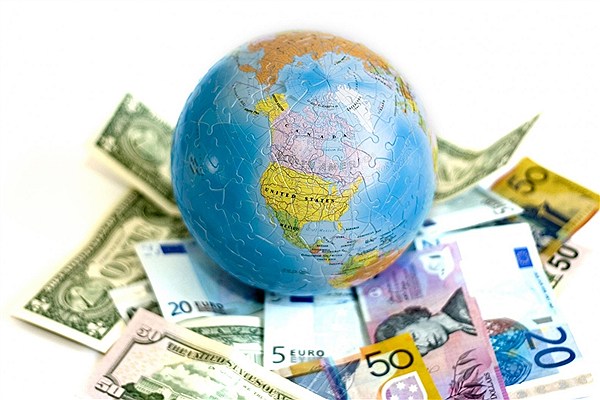If in the nineteenth century the Bank of England was considered the main leader of the world financial system due to its vast colonial territory, in the twentieth century this role reached a fixed dollar-gold relationship in the Bretton Woods system and then in the last three decades of the twentieth century the dollar-gold relationship was severed by Nixon, and after globalization of financial markets in the 1990s, today in the 21st century, according to Hazel Henderson, the global financial system has become an international casino; a role that even George Soros pointed to in the wake of the 2007 financial crisis, revealing the extensive betting of the big stockbrokers over the bankruptcy of financial markets.
The global financial system is a framework of legal agreements, formal and informal economic institutions and agents that, together, keep the international flow of financial capital and trade finance active. The two sub-systems of the global financial system include global financial markets or securities system and the global monetary system for trading or with an aim of obtaining profit out of exchange of foreign currencies (Forex).
The current international monetary system consists of a mixture of free-floating exchange rates and fixed rates. The currencies of the main trading partners of the United States are exchanged in free markets. In such a market, the exchange rate between two currencies is determined by the supply and demand of those currencies. Of course, this activity is subject to the intervention of the central banks in many countries. Factors influencing the increase in supply or decrease in demand for a given currency lead to a decrease in the value of that currency in the foreign exchange market (Forex). In the same way, the factors effective in reducing supply or increasing demand for a currency will increase the value of that currency.
When the parties to a trade deal are established in one country, the exchange takes place using a single currency. In international exchanges, availability of more than one currency is inevitable because the parties are residing in different countries. The value of most foreign currencies fluctuate from time to time and, therefore, the measurement of the monetary value of an international exchange, whether in the currency of the seller country or the buyer country, will likely change if payment is delayed. The result is that the seller gives in to lesser income than what was expected, or the buyer accepts to pay an amount higher than the expected amount of the goods. Therefore, the term exchange rate risk refers to the possibility of a decrease in income or an increase in the cost of an international exchange as a result of a change in the foreign exchange rate. Importers, exporters, investors and multinational corporations are all exposed to exchange rate risk.
Despite the presence of international organizations such as the World Bank and the International Monetary Fund on the one hand, and monetary or financial unions such as the Euro in the European Union or bilateral or multilateral trade relations among countries, the global financial system in both aspects of the monetary and financial system has been deregulated with a severe trend since late 1970s and in the process of globalization in the 1990s, the liberalization of financial and monetary flows has been intensified. Nevertheless, countries such as the United States, which has the heaviest weight in global trade and finance, have been considered as the major player and have been more influential in this area.
Although competitors such as the European Monetary Union have challenged their position, the global financial system with the weight of more US financial markets and the US dollar is placed, with strong bargaining power, alongside European financial markets including London and Hong Kong as the important centers for attracting cash flows.
Although in 2015 China proposed establishment of an international body for the administration of world trade and financial affairs, the proposal however was not met with success, and today is a regional “World Bank” practically at the level of the Asian Infrastructure and Investment Bank, which China expects to globalize its role because all countries of the world can join it and, like the World Bank, finance their long-term projects through the loans of the bank. In fact, with the strategy of making countries indebted through the loans or commodity financing, China with its strategy of making countries indebted through loans or commodity financing, seeks to play a similar role to the post-World War II America, as in the process of US domination over global financial system during the reconstruction of the post-World War II Europe.










0 Comments